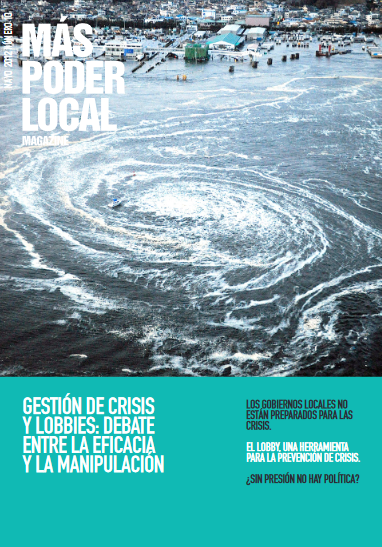No 10 (2012): Crisis management and lobbies: debate between effectiveness and manipulation
Local governments are not prepared for crises.
Javier Sánchez Galicia, pp. 6-9.
Lobbying, a tool for crisis prevention.
Clara de Uribe-Salazar; Jordi Pascual, pp. 10-11.
No pressure, no politics?
Karina Ortiz, pp. 12-13.
The communication of public policies.
Cristina Moreno, pp. 14-15.
Government communication, key to resolving mining conflicts in Latin America.
Cecilia Nicolini, pp. 16-19.
The Conference of Presidents: More shadows than light.
José Gabriel Ruiz González, pp. 20-21.
Malvinas: Communication and the international agenda.
Ignacio Tomás Liendo, pp. 22-27.
Andalusian elections: polls, continuities, and changes.
Juan Montabes Pereira; José Manuel Trujillo, pp. 28-31.
Dominican elections. Chronicle of an unexpected comeback (part 2).
José Gregorio Cabrera Cuello, pp. 32-33.
Venezuela, Presidential Elections.
Pedro Abellán Artacho, pp. 34-35.
People want leaders during crises. Watch out... they may appear!
Juan Rivera, pp. 36-37.
I want to leave... but only if I can do it well.
Mario Riorda, pp. 38-41.
Why do you call it Issues Management when you mean environmental analysis?
Kathy Matilla, pp. 42-43.
The New Public Management at the local level: the experience of the Castellón City Council.
Mélany Barragán Manjón; Sergio Pérez Castaños, pp. 44-47.
VI Summit of the Americas. Between success and failure.
Sofía de Roa, pp. 48-49.
An epistemological approach to crisis situations.
Joaquín Fernández Mateo, pp. 50-51.

